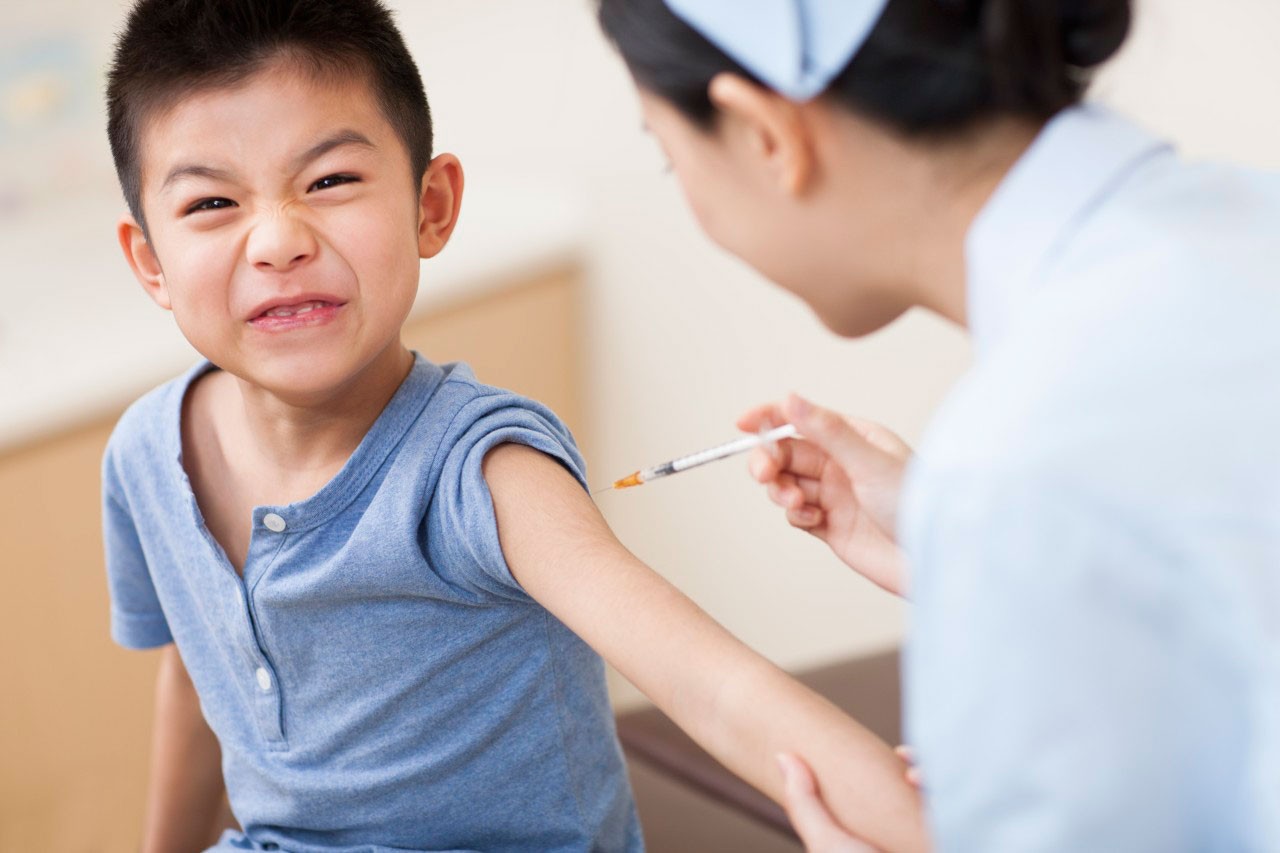California Moves Against Anti-Vaccination Bloc

Do you really want a surge of measles in your kids’ classroom?
In pockets of California, hundreds and even thousands of kindergartners haven’t been fully vaccinated. Still, statewide, only a sliver of the state’s 500,000 kindergarteners, some 13,500 kids, had a personal belief exemption in 2014-15. Official anti-vaxxers, though vocal, are a small group.
When California legislators hashed out the vaccination debate this year, the real questions were political, not scientific. As Gov. Jerry Brown wrote, “The science is clear that vaccines dramatically protect children against a number of infectious and dangerous diseases.” The trouble is that parents who disagreed wanted their kids in daycare and school. Should the state keep unvaccinated children out of rooms where they could infect other children every day? After a measles scare, the legislators decided yes.
One infected kid can do lots of damage. After an intentionally unvaccinated 7-year-old boy came home to the San Diego area from Switzerland with an unrecognized measles infection, 48 children too young to be vaccinated were quarantined. The estimated public cost came to $10,376 per case. Babies and children who have not been vaccinated for medical reasons are especially vulnerable to infection. But even vaccinated kids are at risk. About 3 percent of people who receive two doses of the measles vaccine will get measles if they come in contact with someone who has the virus, according to the Centers for Disease Control and Prevention.
Although people opposed to mandatory vaccination have been fighting back around the country (and in presidential candidate debates), proposing laws that would make it easier to exempt their kids, in recent years, states have been tightening up.
The new California law ended the personal belief or religious opt-out, phasing in new rules over 2015. Barring repeal, it will go into effect at the start of the 2016 school year. As of January 2016, parents who do not want to vaccinate their kindergarteners and seventh graders will have two options: get a medical exemption from a doctor or enroll them in homeschooling or independent study.
Because the state’s purpose is to protect other children, kids in individualized special-ed programs aren’t required to get a vaccine, though that puts them at risk of disease.
Smaller children also must be vaccinated to enter day care or pre-school, but you can avoid it if they already have a personal exemption. The list covers 10 diseases: diphtheria, Haemophilus influenzae type b (bacterial meningitis), measles, mumps, pertussis (whooping cough), polio, rubella, tetanus, hepatitis B, and chickenpox.
Kids who already have a personal belief exemption must get vaccinated when they change schools, or enter kindergarten or seventh grade.
Home-schooling may look attractive as an alternative, especially in places like Nevada County, where it may even put a noticeable dent in school enrollment, observers say. Some 20 percent of kindergartners hold personal belief exemptions there.
Nationally, about 3 percent of kids between ages 5 and 17 were home schooled in the most recent numbers released by the National Center for Education Statistics, an increase from just over 2 percent in 2003.
Many California counties offer home-schooling or independent study programs, which are required to teach state-mandated subjects, but have discretion over when and how. A variety of companies offer online curriculums. You can get your home certified, join another private home-schooler, hire a credentialed tutor, or enroll your child in an independent-study program connected to a credentialed school as long as it doesn’t require classroom-time.
These options have their own trade-offs, of course. Your children might like spending the day with a larger group of children. Paying for a tutor or overseeing them during the day and keeping them on track with schoolwork is a huge commitment for parents.
Teresa Fitzpatrick, president of Anaheim-based California Homeschool Network, said in late August that her organization has seen only a mild increase in calls so far. Home-schooling will be harder for parents who are doing it out of fear of vaccines rather than an active interest, she cautions, but she expects to get more calls as the 2016 deadline nears. If we see outbreaks of disease among unvaccinated home-schooled kids, doctors who warned their parents will face the question of whether to allow the children in their waiting rooms. What do you think is best for your child?
Updated:
October 02, 2015
Reviewed By:
Janet O’Dell, RN